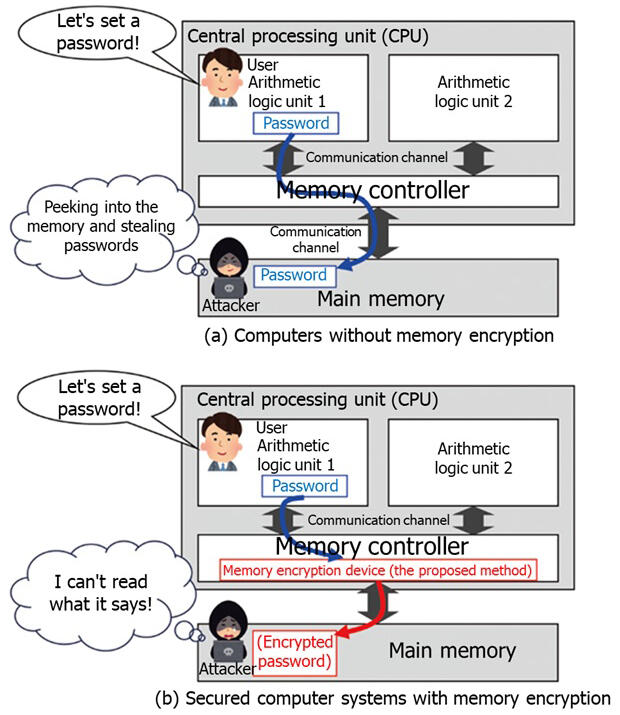Information and communication devices such as personal computers (PCs) and smartphones are an essential part of modern life. In these devices, a range of information is stored in the main memory and read by the central processing unit (CPU) as needed. Since the memory contains personal and confidential information, "memory encryption" is essential to detect unauthorized access or tampering by anyone other than the owner. However, due to the recent trend toward a larger memory capacity, it has been difficult to protect data without compromising data security, device performance, and user convenience.
A research group led by Professor Naofumi Homma of the Research Institute of Electrical Communication at the Tohoku University in collaboration with researchers at the NEC Corporation undertook the development of a new memory encryption method that significantly improves computer performance and user convenience over conventional methods while ensuring data security. In addition to developing a dedicated encryption method for improved encryption speed and recovery performance during attacks or errors, they devised a data structure for encryption in memory and hardware configuration based on this new method.
This new method is demonstrated to reduce data read and write latency by up to 63%, reduce memory capacity degradation by approximately 44%, and speed up the process of detecting and recovering from memory errors and tampering attacks by thousands of times. The security of the method has been mathematically proven to provide safe and efficient data protection even for large memory volumes in the terabyte range.
As the new method is versatile, the group plans to apply it to various computers, from data centers providing cloud services to PCs and smartphones for personal use, and further conduct verification tests with the aim of improving the safety and performance of the entire information and telecommunication system.

(b) Memory encryption can protect confidential information from attackers who try to access the data illegally.




